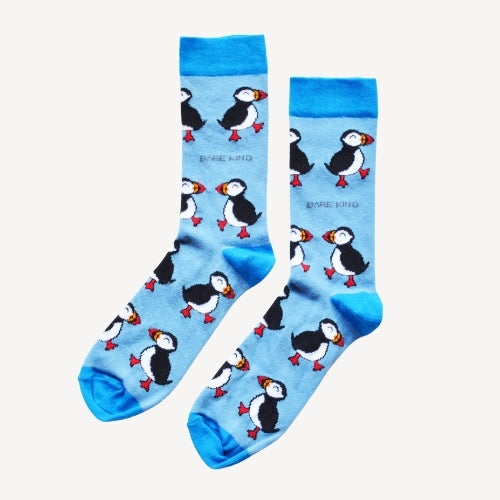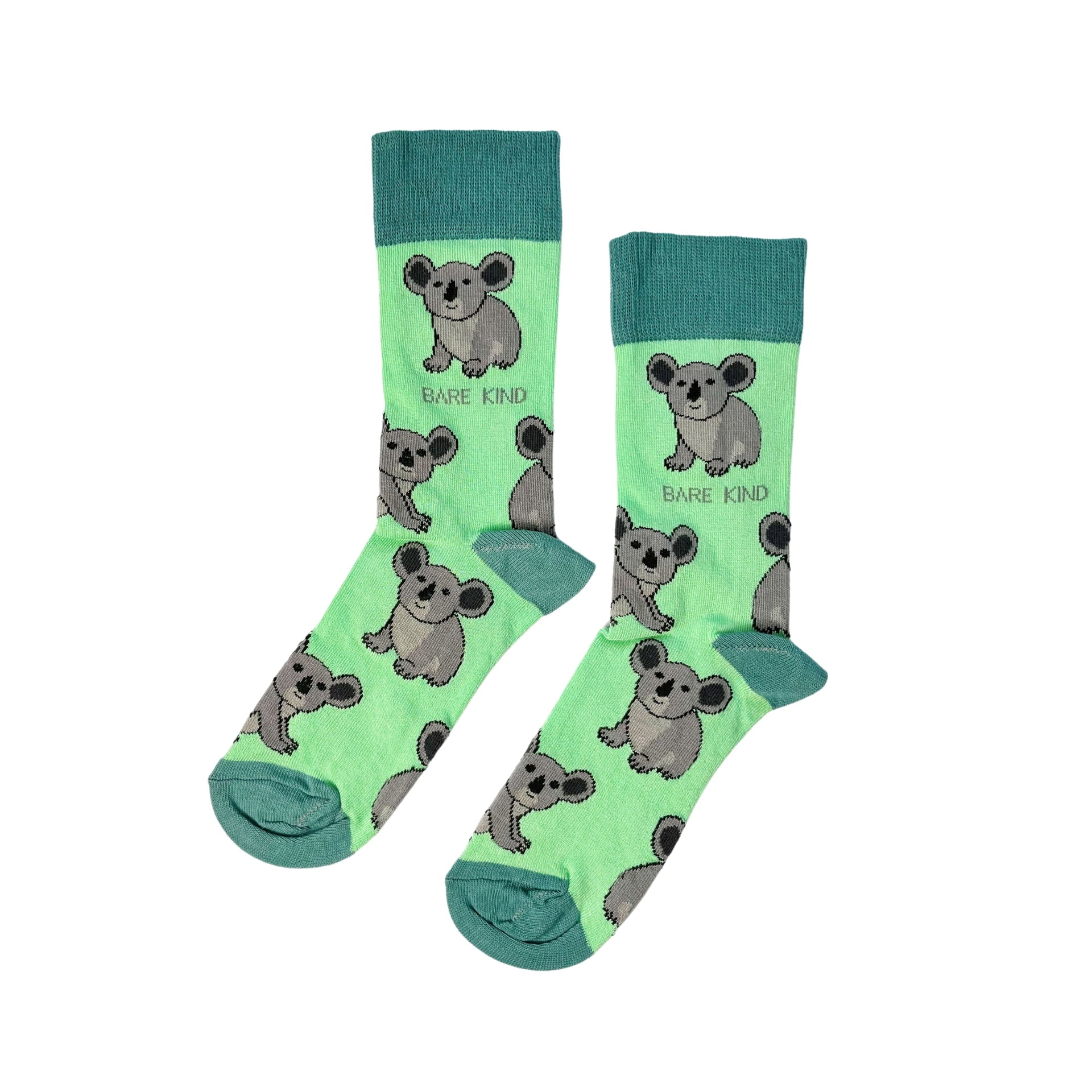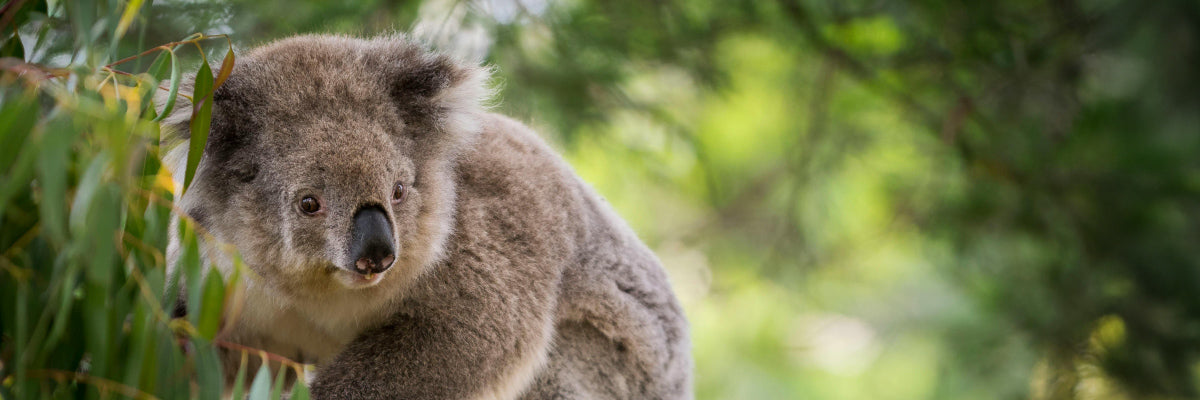
Save the Numbats, Platypus' and Koalas with Australian Wildlife Conservancy
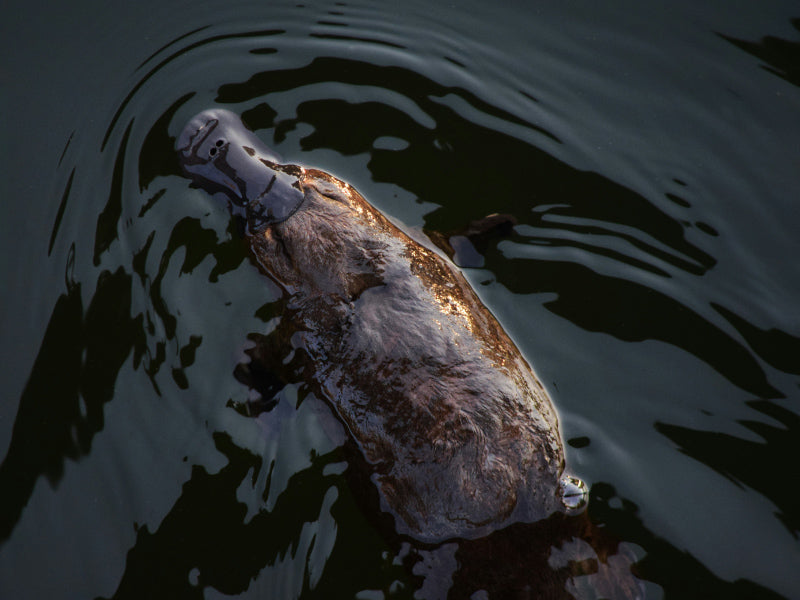
The platypus, an egg-laying mammal, is also at risk due to habitat loss, pollution, and the effects of climate change. Populations have declined by up to 30% in some areas, and the species is now considered near threatened.
Wallabies and numbats are also under threat in Australia. The black-flanked rock-wallaby, for example, has seen a significant population decline due to habitat loss, predation by introduced species, and hunting.
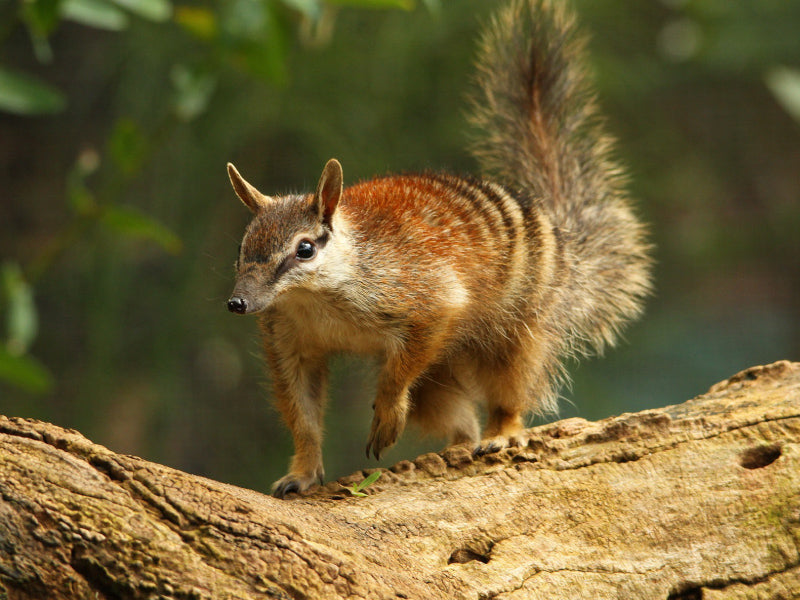
The numbat, a small marsupial, is listed as endangered due to habitat loss, introduced predators, and disease.
Conservation efforts are crucial to protect these unique and important species and their habitats. Supporting organisations that work to conserve and protect these species can help to ensure their survival for future generations.
Numbat populations have decreased by over 80% in the past century, and now only a few thousand individuals remain in the wild.
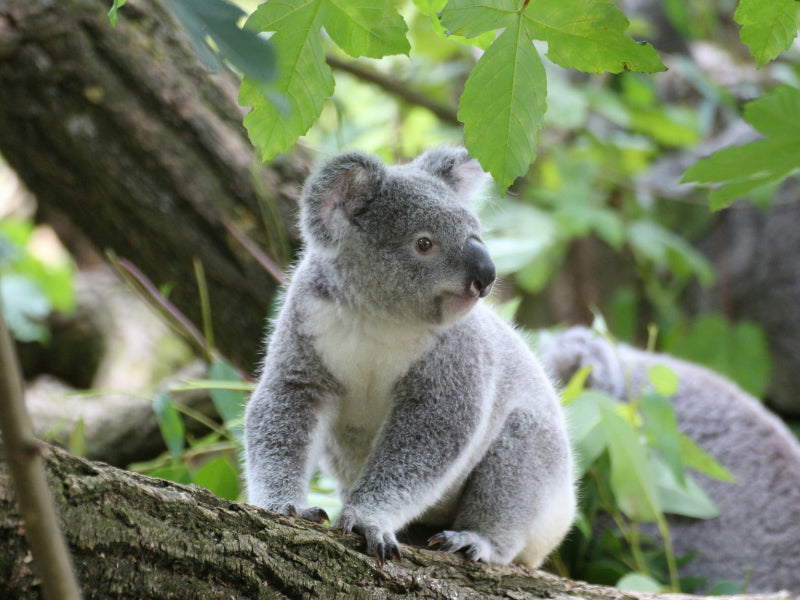
Koalas are adorable creatures associated with the Australian ecosystem. With big eyes, a cute face and fuzzy body, these lovable Aussies continue to melt people’s hearts across the globe. Koalas sleep up to 18-22 hours a day! Their diet of eucalyptus leaves is so low in nutrients that they conserve energy by snoozing most of the time. They’re super picky eaters. Out of 700+ species of eucalyptus, they only munch on about 50, and their taste buds are highly refined to avoid toxic leaves. This means that they are a vital part of the Australian ecosystem by helping to regulate eucalyptus growth.
Koalas have been listed as endangered and require prompt action to prevent them from going completely extinct. Habitat loss is the greatest contributing factor to the decline in koala population. This means that if we protect their habitat, we can help koalas to repopulate, strengthening their chances of survival.
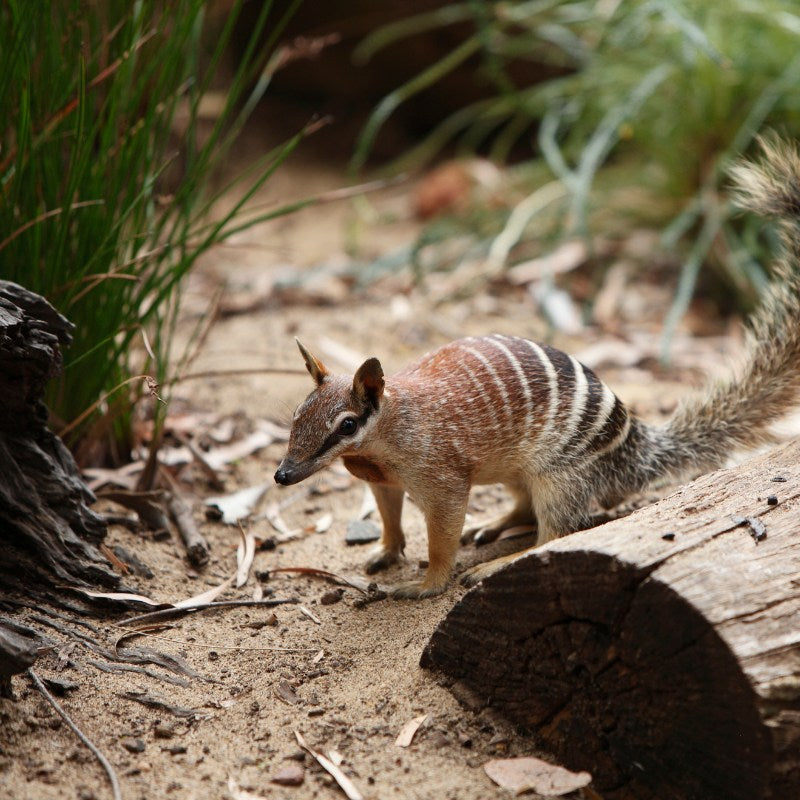
The Australian Wildlife Conservancy (AWC) is a non-profit organisation that works to protect and conserve Australia's threatened wildlife and ecosystems through on-ground conservation actions, scientific research, and education. AWC owns and manages over 4.5 million hectares of land across Australia, making it the largest private owner of land for conservation in the country.
The organisation's work is crucial as Australia has one of the highest rates of species extinction in the world, with over 1,800 plant and animal species currently listed as threatened or endangered. The AWC focuses on conserving some of Australia's most endangered species, including the numbat, gouldian finch, and western quoll, among others, by using a science-based approach to manage threats such as feral predators and habitat destruction. The organisation also aims to restore and maintain the health of ecosystems, recognizing that the conservation of Australia's wildlife is linked to the health of its landscapes.
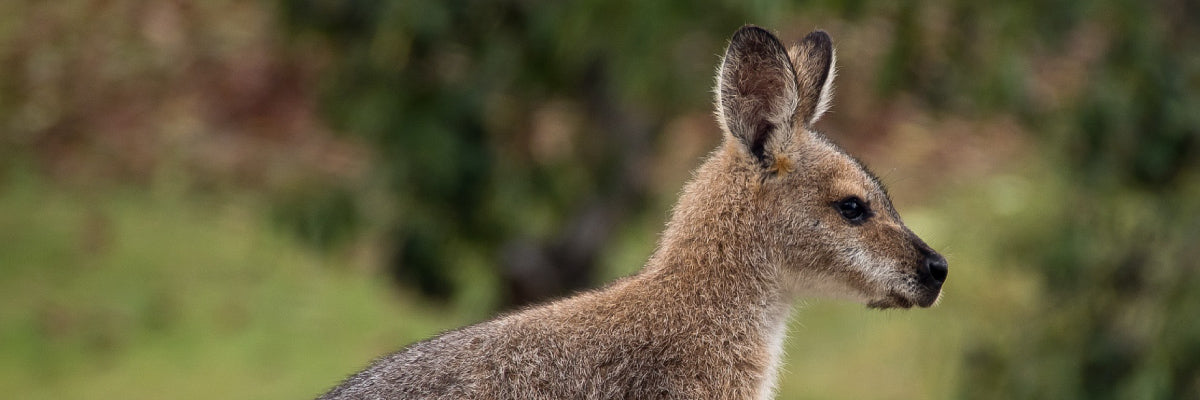
We funded effective conservation for affected wildlife and wild places in Australia by removing pressures, measuring and reporting on outcomes, and expanding the conservation landscape with the Australian Wildlife Conservancy
We donate 10% of profits from your numbat, platypus and koala socks to
Example product title
Share
Save the Platypus Bamboo Socks
Share
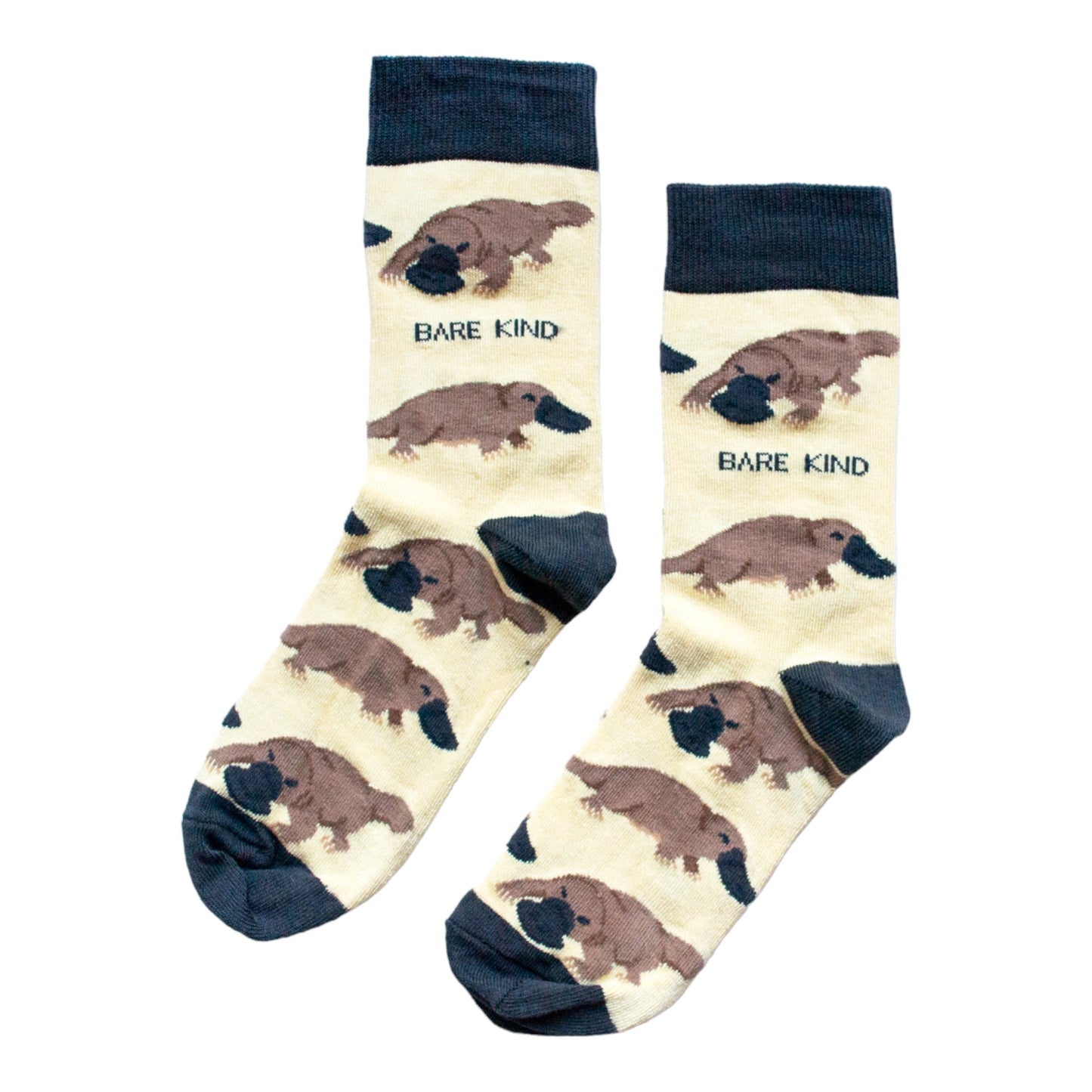
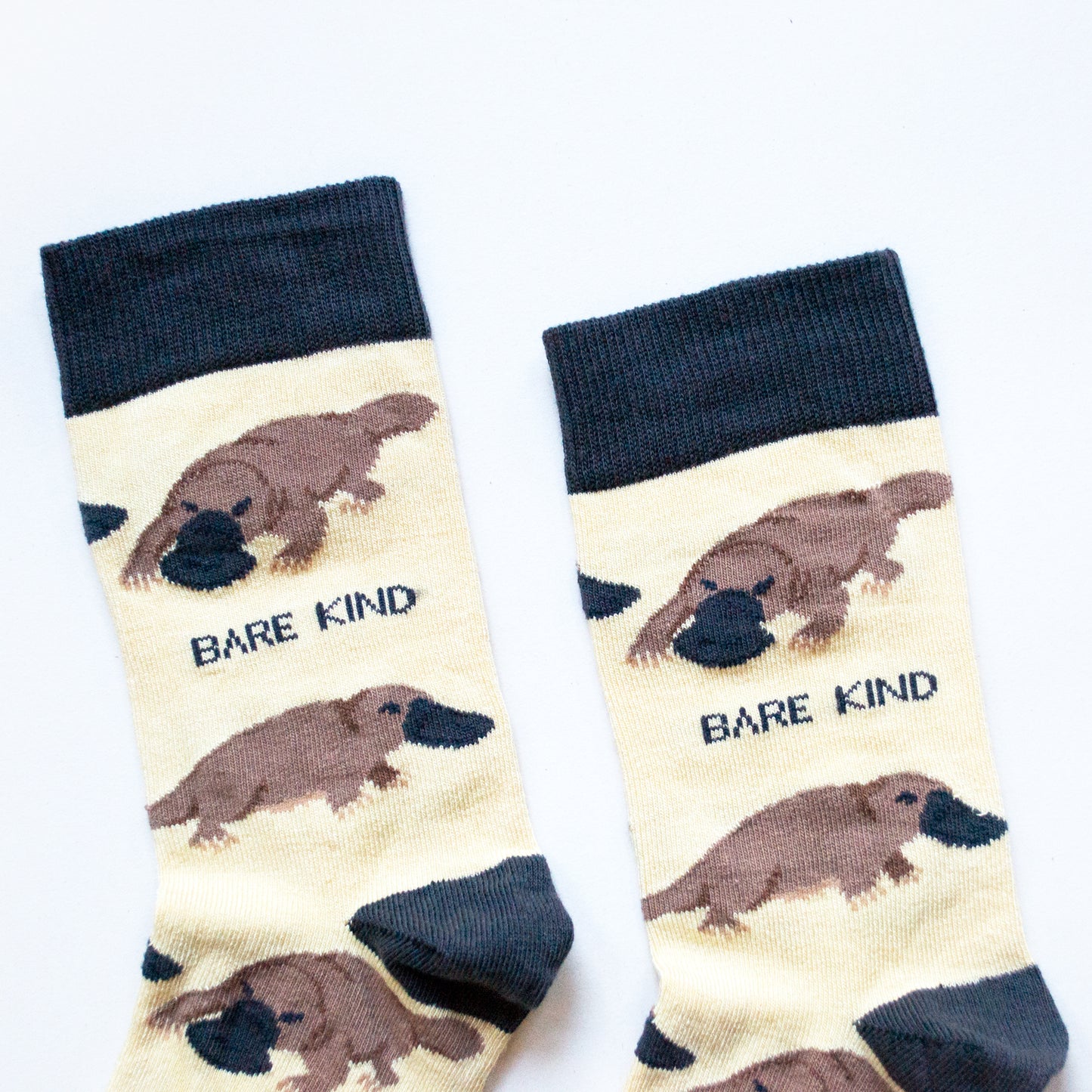
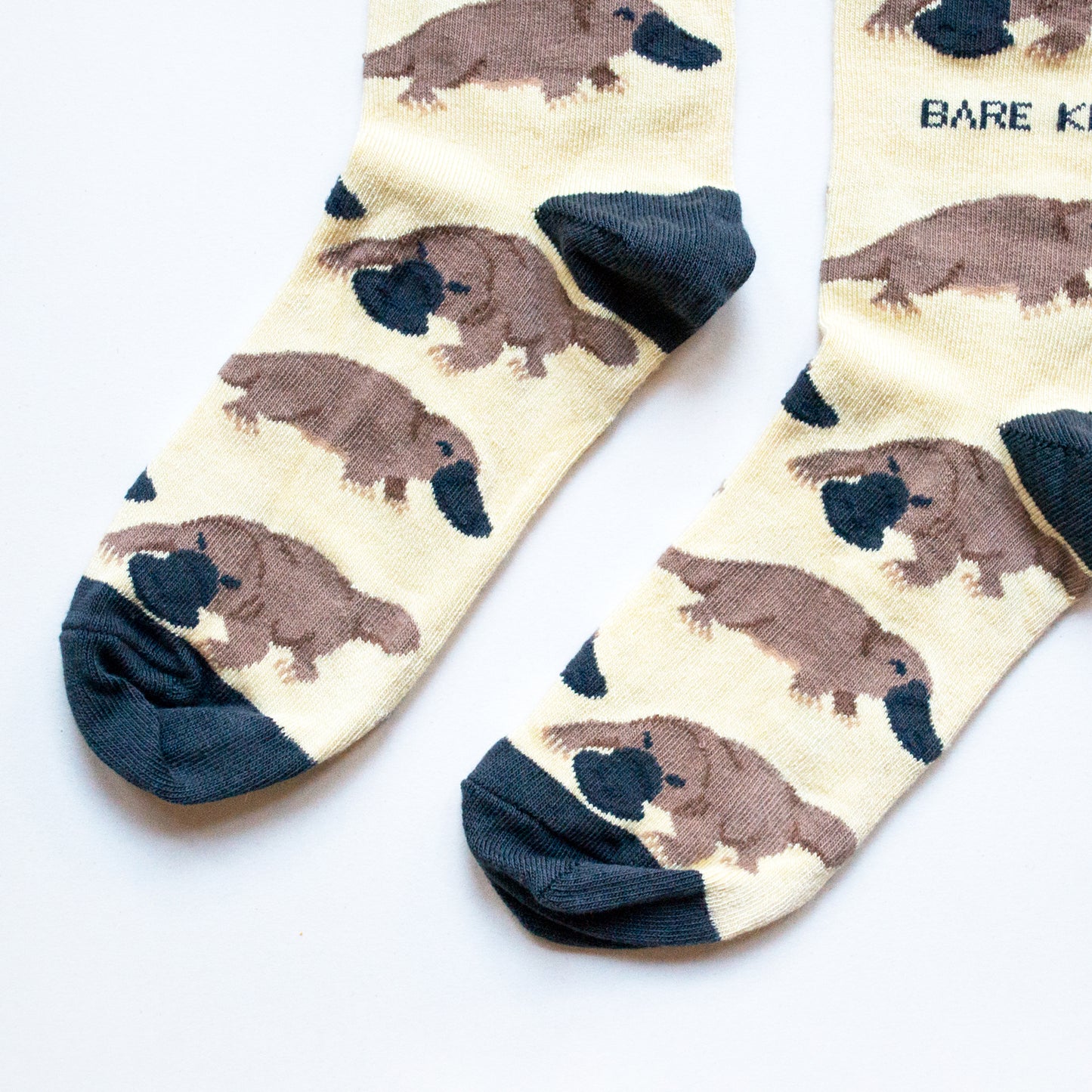
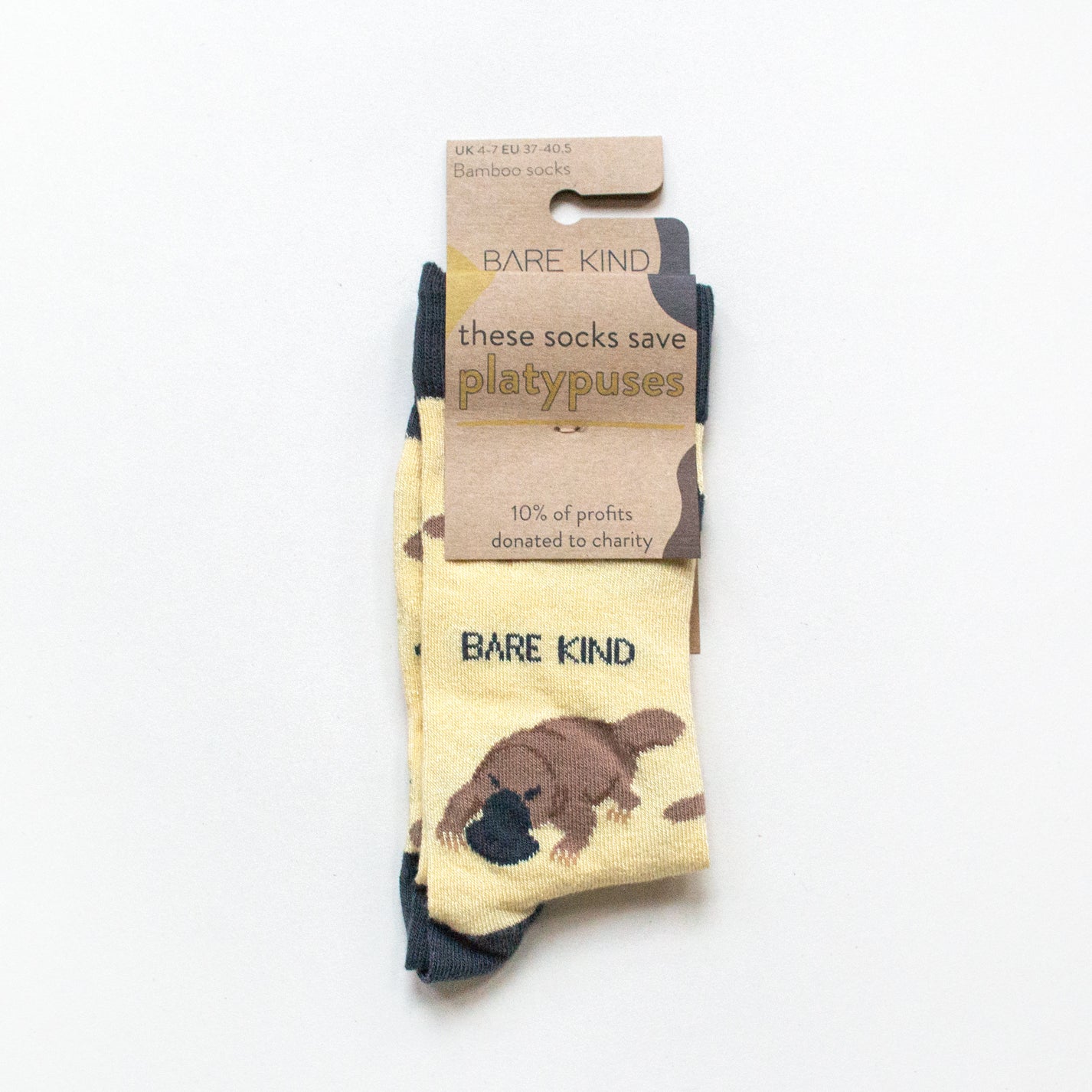
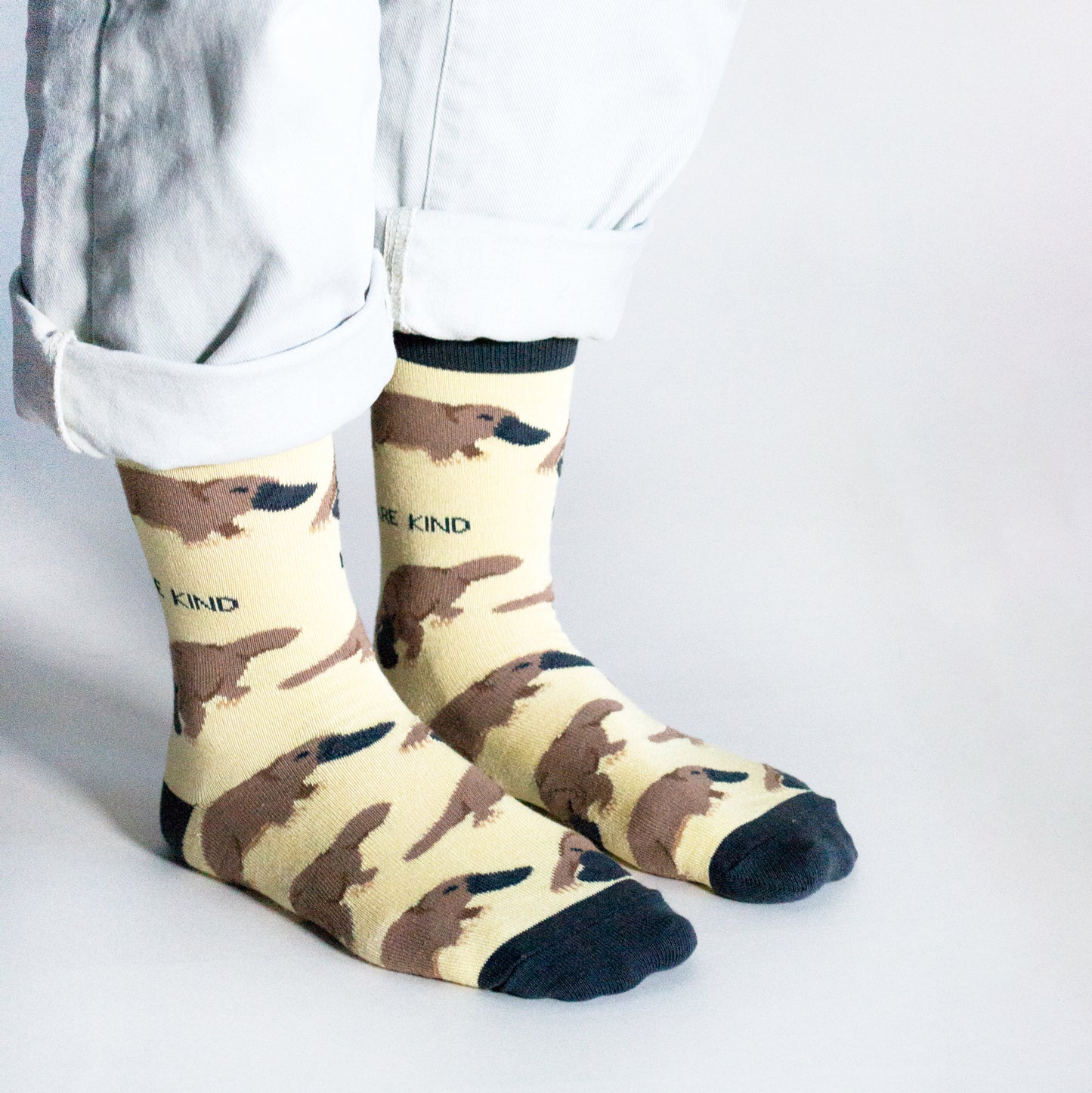
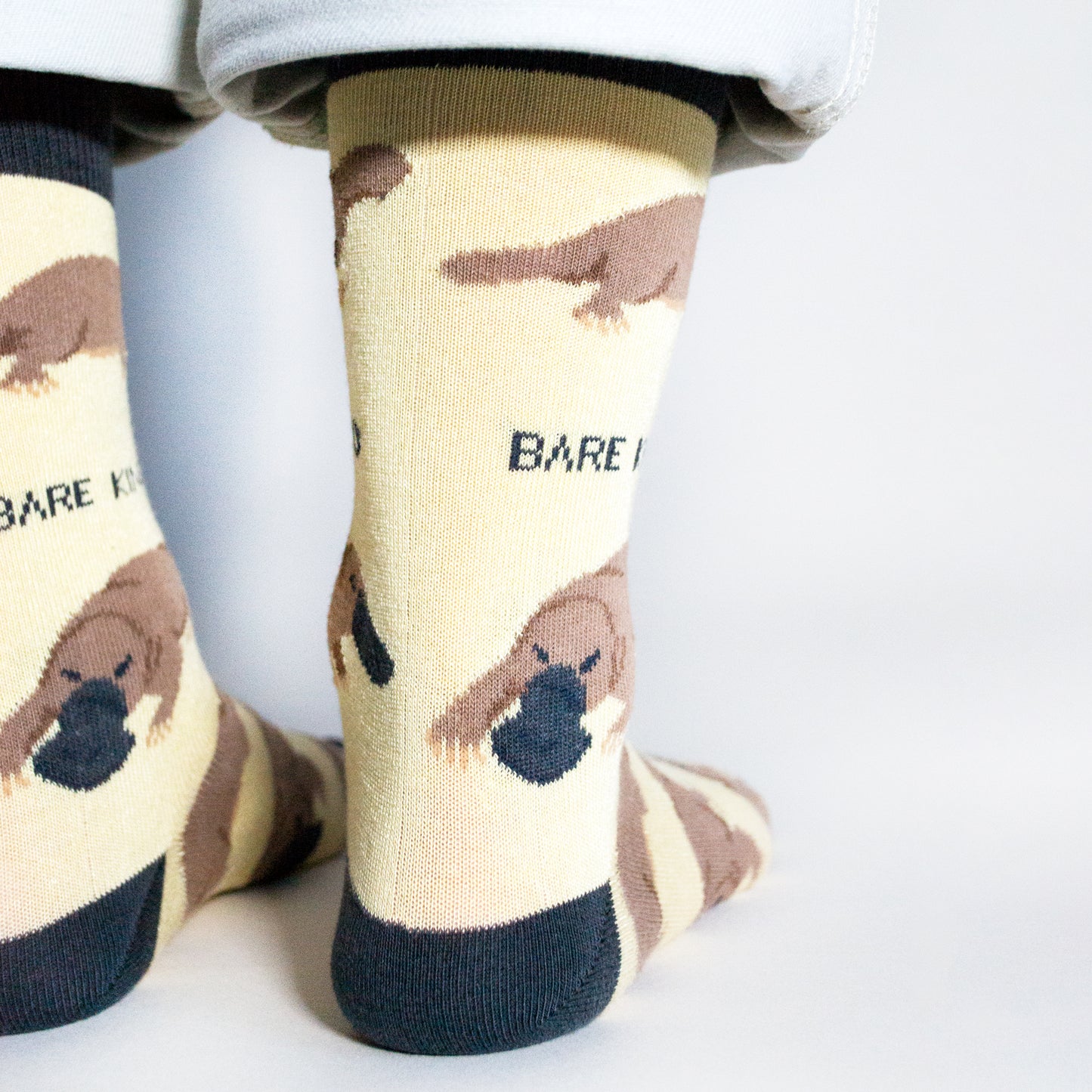
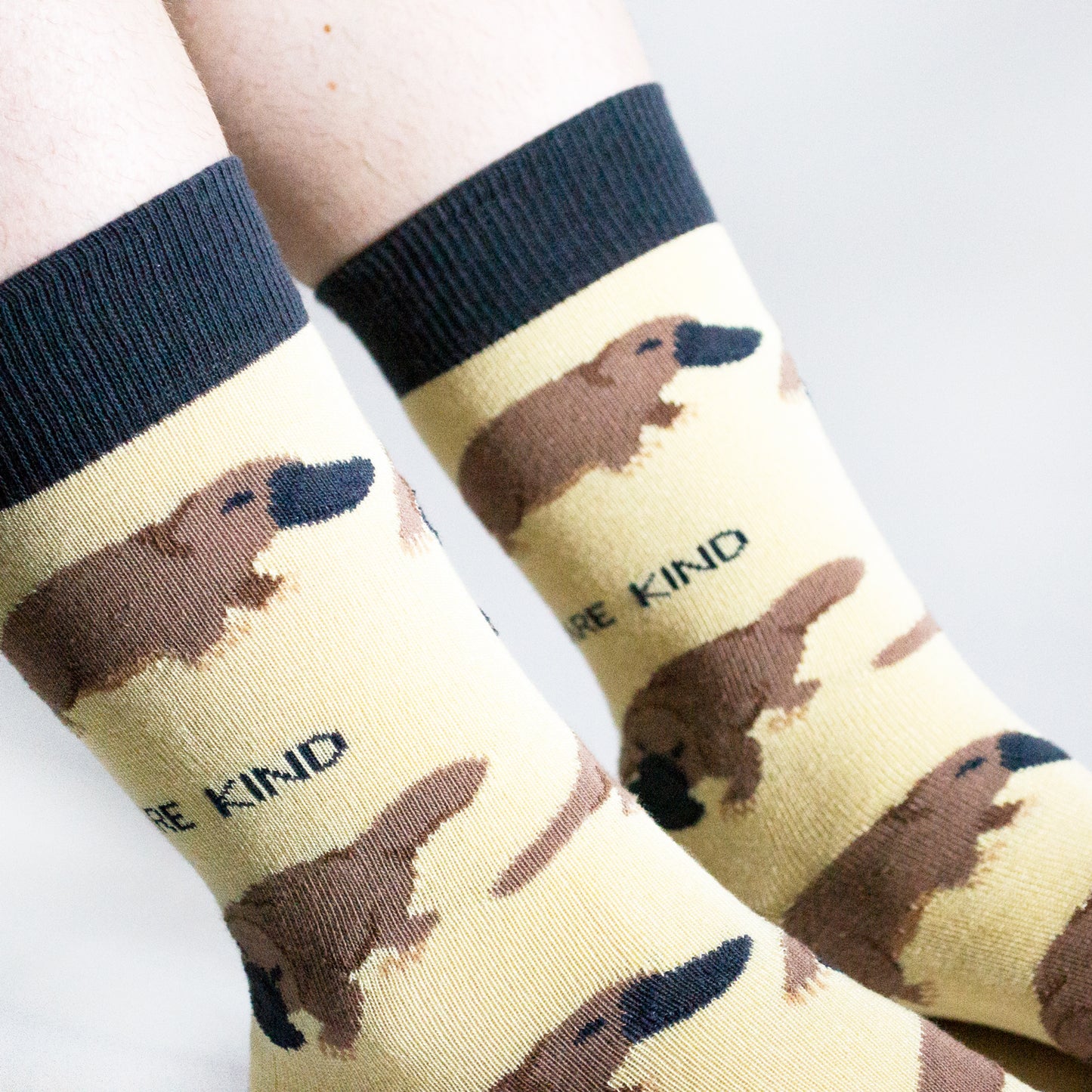
Save the Koalas Bamboo Socks
Share
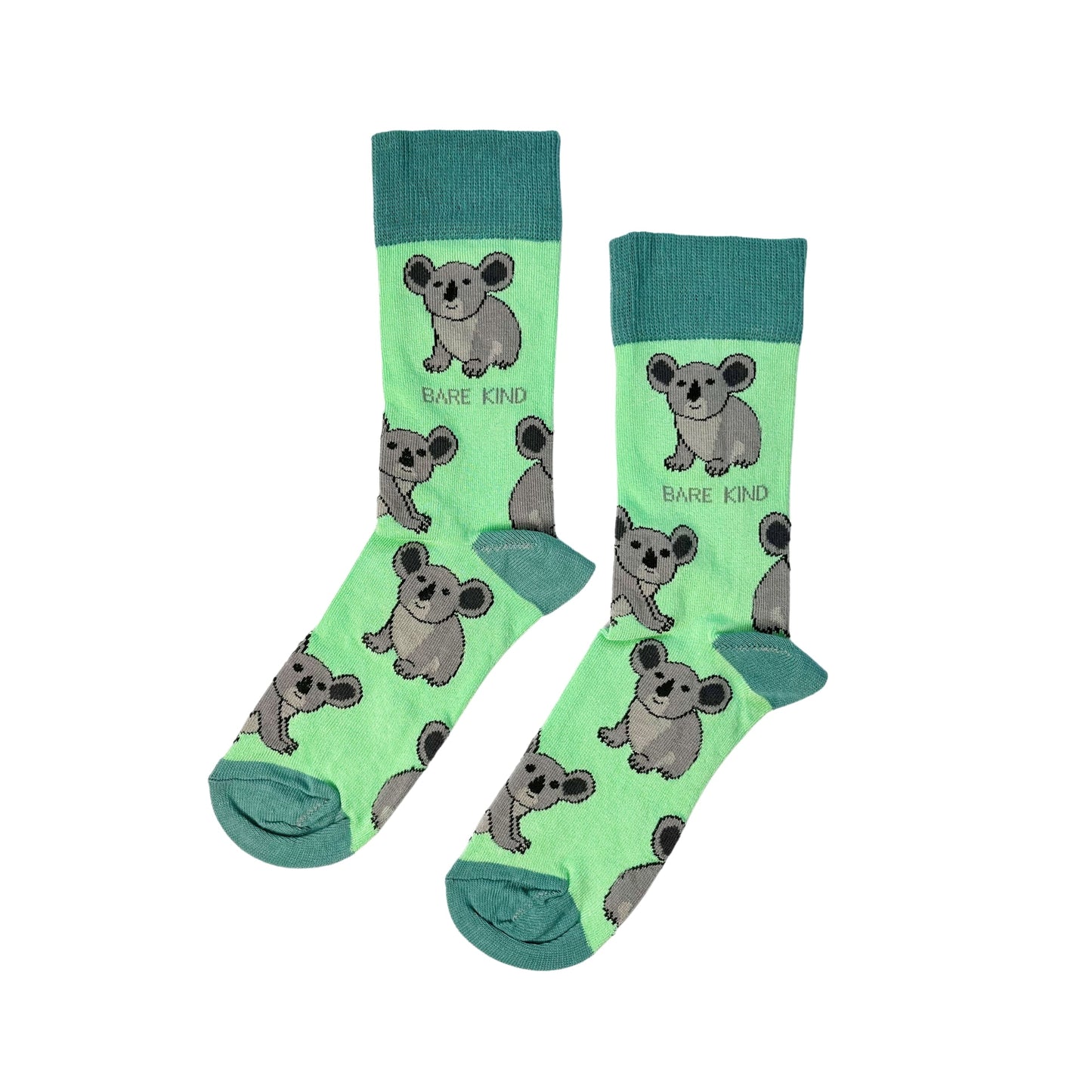
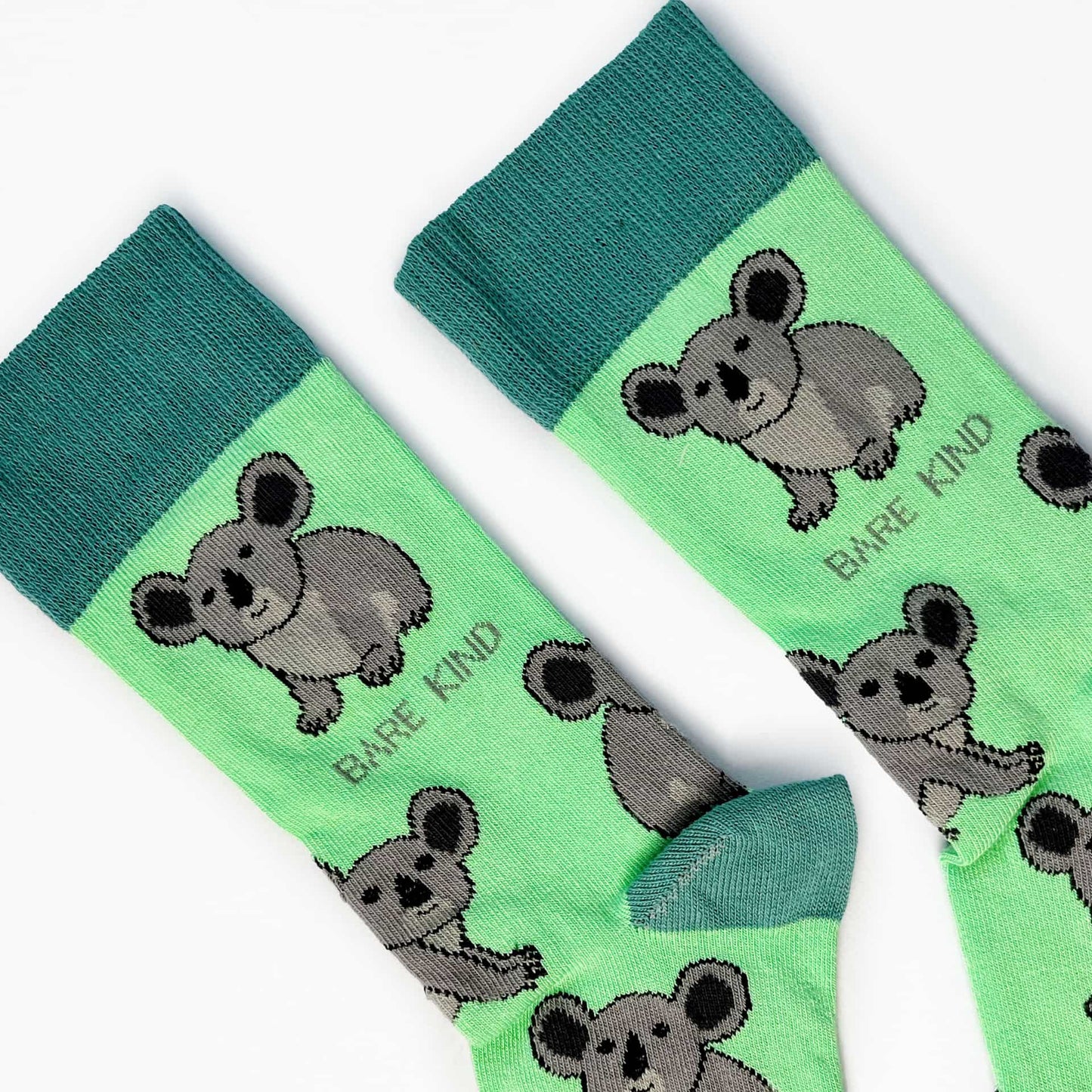
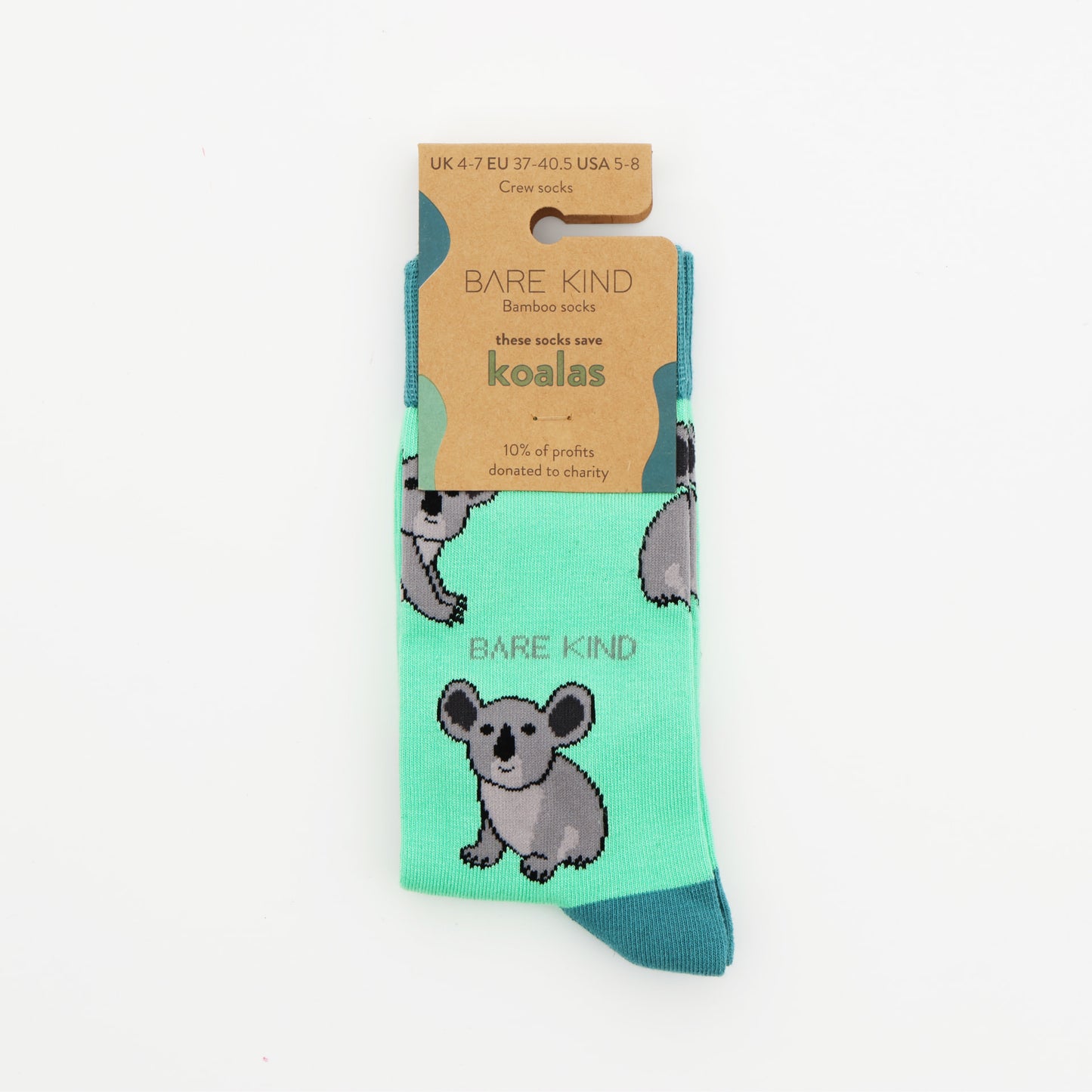

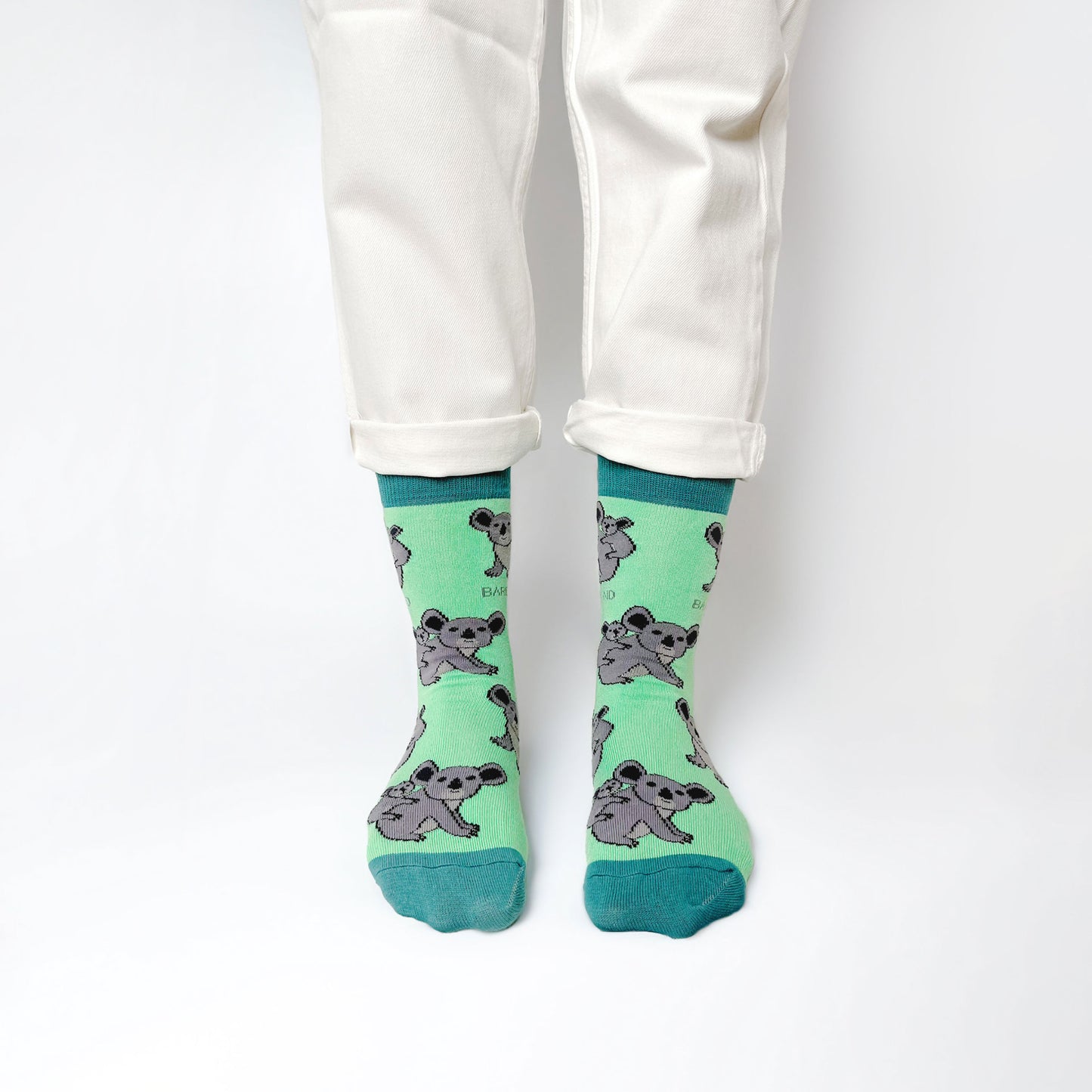
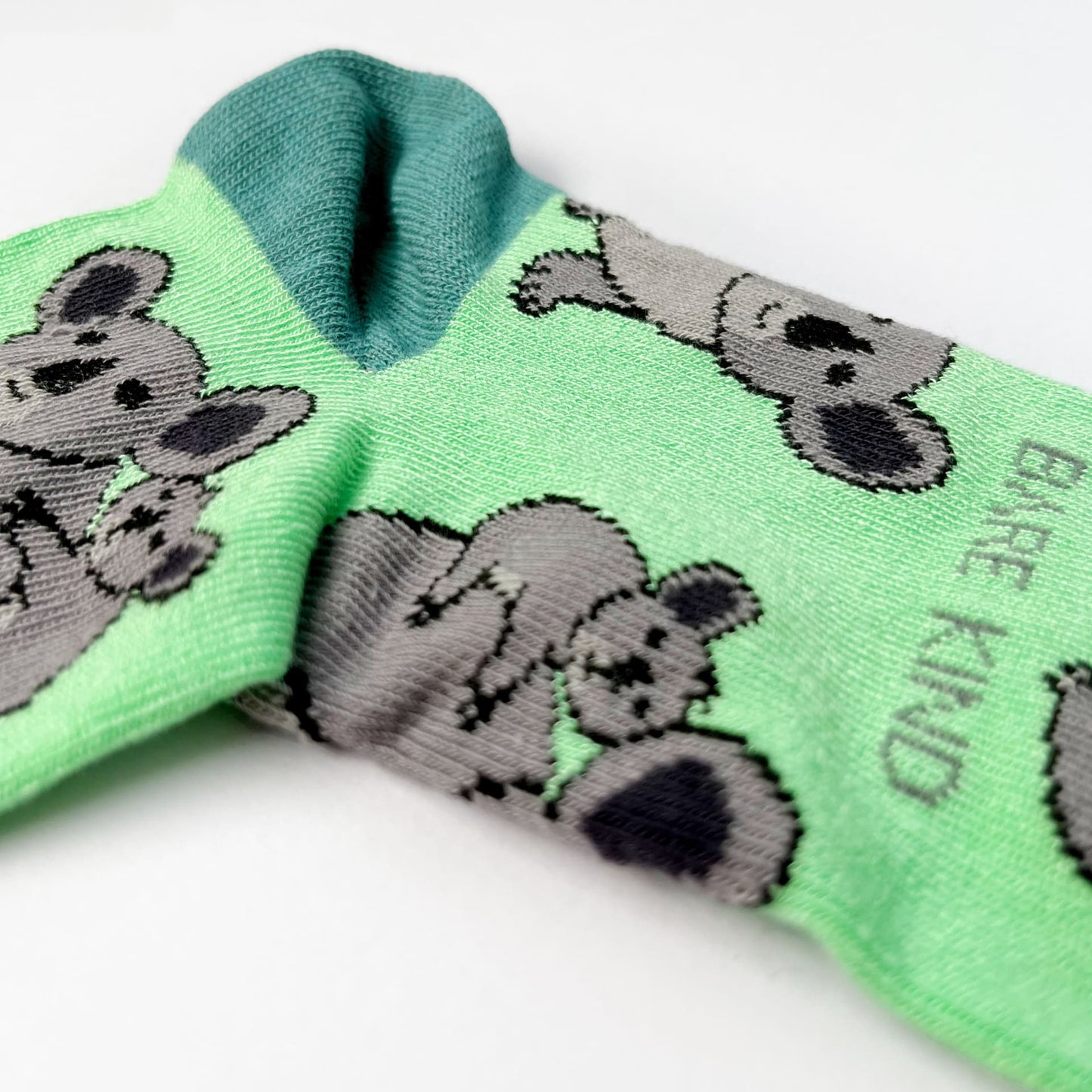
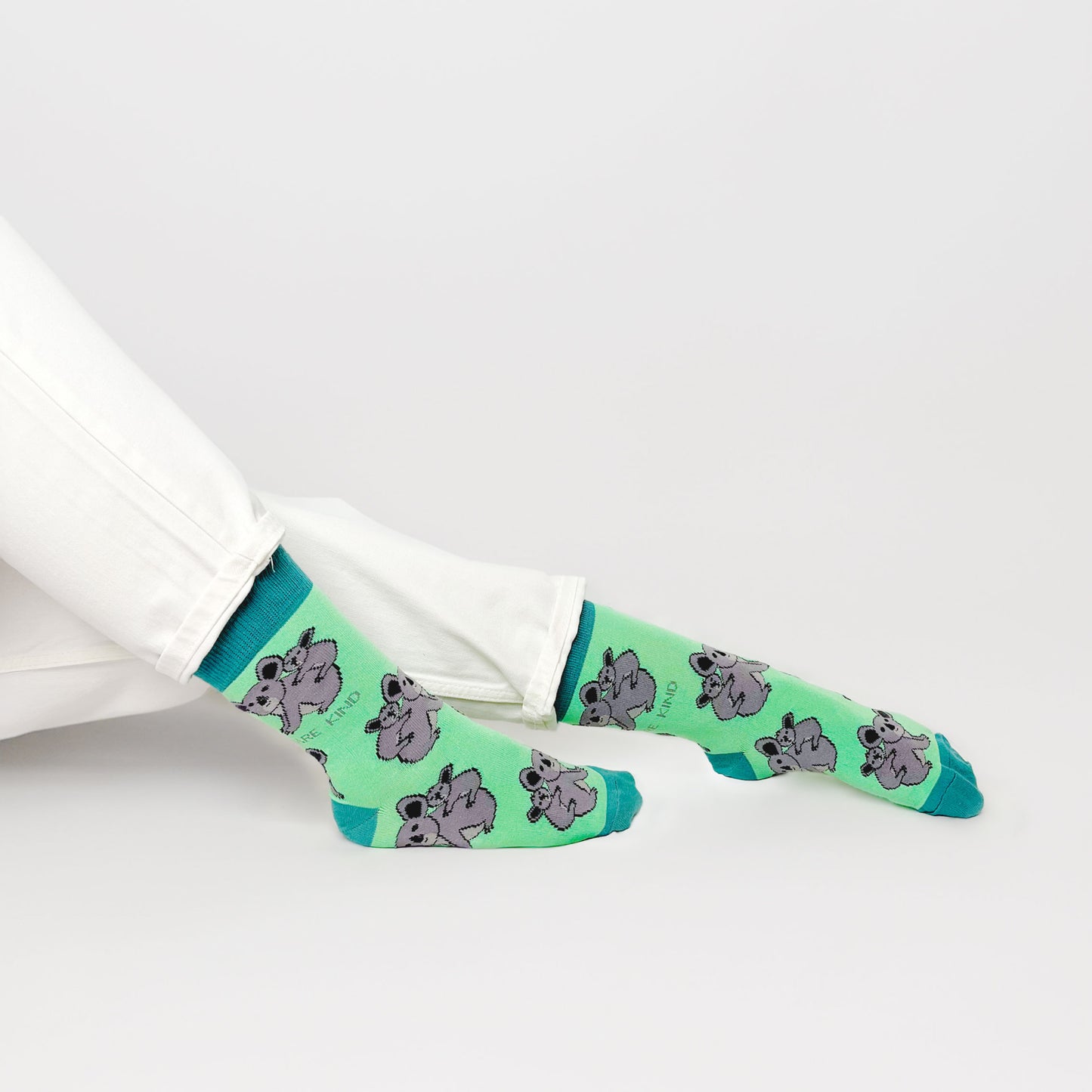
Check Out Animals We Have Helped in the Past
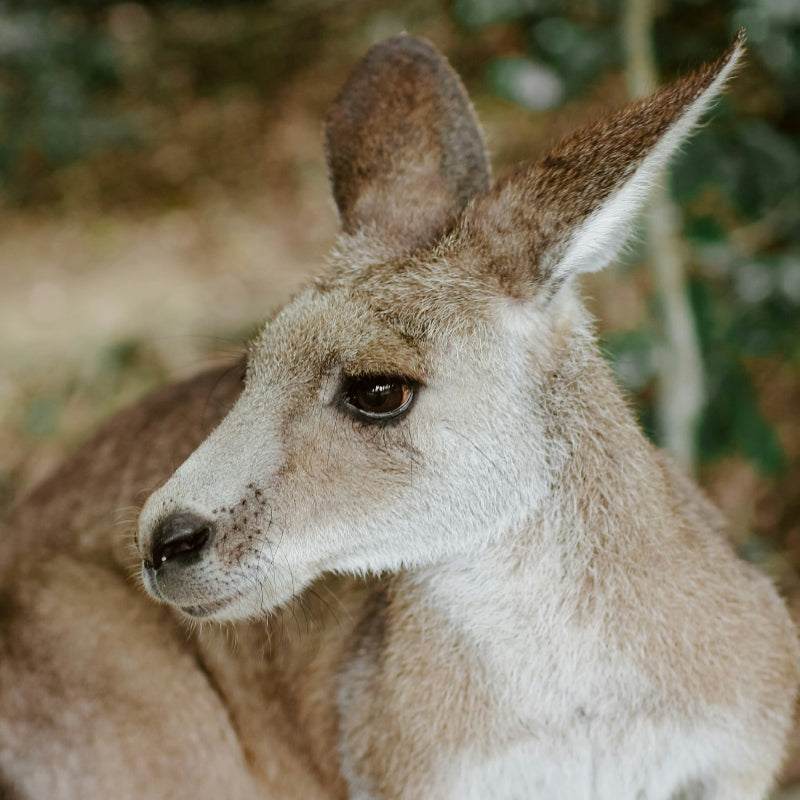
Wallabies are fascinating and often overlooked members of the marsupial family. While they may resemble smaller kangaroos, these agile creatures have unique adaptations that make them an essential part of their ecosystems. With powerful hind legs, wallabies can leap up to 10 feet in a single bound. They are basically, the long-jump champions of the Outback. And get this: their tails act like a built-in kickstand, helping them balance as they bounce around. But wallabies aren’t just cute, bouncy fluff-balls; they play a crucial role in their ecosystems. Their diet of grasses and plants helps with seed dispersal, contributing to healthy vegetation growth and biodiversity. They even aerating soil as they dig around for food.
Beyond their ecological role, wallabies are a vital part of Australia’s natural heritage. Sadly, habitat destruction and predators are putting some species at risk. Protecting wallabies means preserving the delicate balance of their ecosystems and ensuring future generations can appreciate these remarkable animals. We've supported wallaby conservation in the past by donating to Australian Wildlife Conservancy , helping protect their habitats and boost their population.
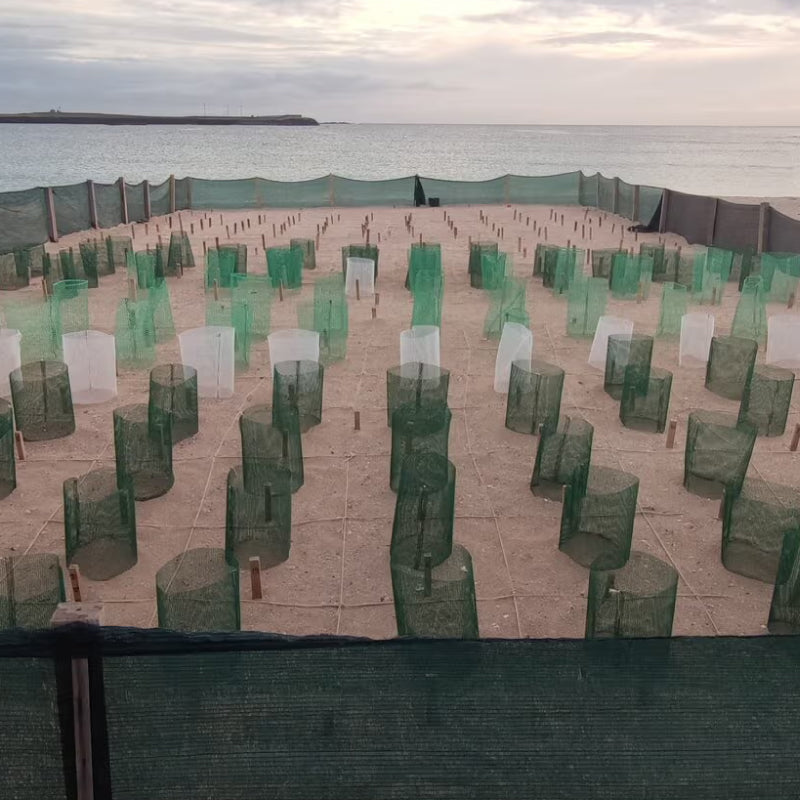
Our philosophy
Restoring the biodiversity of our planet and its varied species is at the core of Bare Kind’s mission. By donating 10% of gross profits to charities that support the animals on our socks, we can continue fighting the fight against species extinction.
Bare Kind has been able to achieve an all-time high of donations in recent years. The business expanded its sock range to 40+ pairs and supports 35+ charities.
Our Charity Impact Reports highlight the projects we have been able to fund with our charity partners and the incredible animals we support.
Our hope is that something as humble as a pair of socks can make a lasting impression on our world and change it for the better. A huge thank you goes out to all our customers who have wanted to make a difference and empower the restoration of our planet with their socks.
